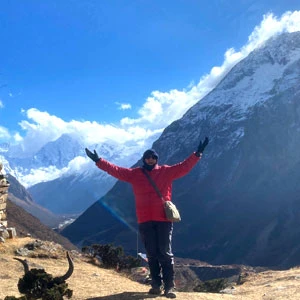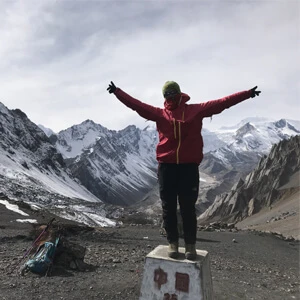Everest Base Camp Trek: Overview
Everest Base Camp Trek in eastern Nepal is one of the most spectacular and iconic hikes of all, with trekkers from all points of the compass gravitating towards the natural allure and legend of the world's highest (8848 m) and most famous peak. It's an experience that encompasses more than just mountains, as the trek offers a golden opportunity to observe the region's mix of classic Tibetan and Sherpa cultures, a host of regional dialects, and the deeply devoted Buddhist beliefs of the area. Throw in a slew of waterfalls and perfect scenery, abundant wildlife, Khumbu Glacier, and of course the majestic presence of Everest and Lhotse, and you have the makings of one of the most remarkable treks in the country.
Synonymous with the name of Everest — other than Hillary of course — has always been the name of the people most closely associated with the mountain and its conquest, the Sherpas, a hardy people of cheery disposition, resolute manner, and boundless reserves of energy, with a capacity for carrying stunning loads up the steep and hazardous slopes that frequently amazes visiting climbers. Starting with the most famous of all, Tenzing Norgay, they have gradually shifted from essential support roles on climbing expeditions through the years to a complete mastery of the mountains, with some like Kami Rita Sherpa assuming iconic status within the country in recognition of climbing Everest over twenty times.

What to expect from the Everest Trek?
The Everest Base Camp Trek's ultimate goal isn't just about the imposing presence of Everest and Lhotse though, as the area hosts an amphitheater of impressive mountains that include popular climbing peaks such as the extraordinary Amadablam, as well as the trekking peaks of Lobuche East, Lobuche West, and Island Peak. Encompassing virtually all of the area is the UNESCO-listed Sagarmatha National Park, one of the most remarkable wilderness areas in the world with its mixture of soaring peaks, glaciers, rivers, and forests, as well as being home to a wide variety of flora and fauna that includes black bear, musk deer, snow leopard, and red pandas. Most impressive of all perhaps is that over two-thirds of the park's area of 1148 square kilometers lies at an altitude of 5000 meters or higher, a truly astonishing fact.
Within the park's boundaries also lies one of Nepal's most famous monasteries of all, Tengboche, renowned as the destination of all climbers to the region since the days of Hillary, with each expedition seeking the protective blessing of the Lama before moving on to attempt a climb. Our trek through the area allows plenty of scope to pay the monastery a rewarding visit.
So, if you're looking for an adventure that includes beholding the roof of the world, taking in the scenic and natural wonders of one of the great national parks, and basking in the rich and gentle culture of the local inhabitants, get in touch with our staff and let Nepal Trekking Experts organize your visit to Everest Base Camp.
Everest Base Camp Trekking Difficulty:
The difficulty of the Everest Region Adventure is the most common question to everyone. However, it is not climbing Everest or any other mountain other than just a long hike at a high altitude. While Everest is the tallest mountain in the world, it sounds pretty challenging, but in fact, it is more or less similar to the Annapurna Circuit, Manaslu Circuit, Kanchenjunga trek, etc. The Everest Base Camp is situated at a height of 5364 meters (17598 ft.) above sea level. All ages and shapes of people from all over the world have completed this trek successfully with us so far.
Regardless, the Everest Base Camp Trek is non-technical and summits the mountains; it is not like walking in the park either. But as long as you have some hiking practice or experience, swimming, and cardio before visiting Nepal, it would be a plus point. The biggest challenge is walking for many days in rugged, high-altitude terrain. However, distance-wise, we walk 15–16 kilometers per day on average, and it is not a race. We may take many breaks (for water, tea, snacks, lunch, beautiful photos, etc.) during the hike and enjoy the stunning nature.
So the most important factors are your determination, patience, the appropriate season to visit, being well acclimatized during the Himalayas, flexibility on trekking days, being well equipped, hiring a porter, hiking slowly and steadily, and so on.

Best Time for Classic Everest Base Camp Trek:
The best time to trek to the Everest Base Camp is during Spring (March to May) and Autumn (September to November). These periods offer favorable weather, clear skies, and optimal trekking conditions, making them ideal for a memorable adventure in the Himalayas.
Spring (March to May)
It is one of the most popular times due to stable weather, mild daytime temperatures, and less likelihood of rain or snowfall. This season is also known for its vibrant landscapes, as rhododendron forests and other alpine flowers bloom, adding a splash of color to the trails. Additionally, you will get to experience clear views of the Himalayas set across the background of blue sky.
Autumn (September to November)
After the Monsoon rain clears the skies, it leaves fresh and crisp air with some of the unobstructed and clear views of the Himalayas, making Autumn the prime time to trek. This season is also marked by cultural festivals such as Dashain and Tihar, offering trekkers an opportunity to experience the rich traditions of Nepal. Not to mention, the peaks like Mount Everest, Ama Dablam, and Lhotse are in their full glory at this time of the year.
Other Seasons
While it is possible to trek to Everest even during the off-season, however, NTE does not recommend taking on this journey. Winter (December to February) brings harsh cold weather and high altitude area are generally closed due to heavy snowfall. Similarly, Monsoon (June to August) brings heavy rainfall, slippery trails, and reduced visibility.
Everest Base Camp Trekking Permit Cost:
When trekking with Nepal Trekking Experts, the permit fees are included in your package. Your guide will require your passport to obtain the required permits on your behalf. You need to have two different types of trekking permits, such as:
- Khumbu Pasang Lhamu Rural Municipality Entrance Permit - The local government of Khumbu charges NPR 3000 per person, which must be paid in person in Lukla; this permit is not available in Kathmandu.
- Sagarmatha National Park Entry Permit - This permit can be obtained in Kathmandu at the Nepal Tourism Board Office or in Monjo at the Park Entrance Gate. It costs NPR 3000 per person.
Kathmandu to Lukla flights note 2025-2026:
Just for your information, normally Lukla’s flight will be operated from Ramechhap (Manthali Airport) in peak seasons like October/November and March/April. If the airlines are too busy, then they might operate from mid-September in the fall and in May in the spring. It depends on air traffic and the rules of aviation. Ramechhap is located 132 kilometers east of Kathmandu, which takes 4-5 hours by car or van. Most people begin to drive at 2:00 a.m. to get the earliest flight. Our package already includes the road transfer along with the flight.

How can I book the EBC Trek?
To book your trek with us, you have to send a deposit of 10% of the total cost of the trek. Please also forward a copy of your passport, and flight details if and when available. For your convenience, you may forward the deposit to us online through our website. It is completely safe, and as soon as you make it, you will get an automatic receipt in your inbox. The rest of the payment can be paid upon arrival.
For more details, do not hesitate to contact our experts now.



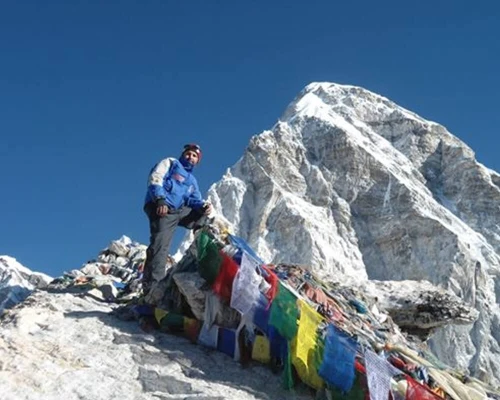
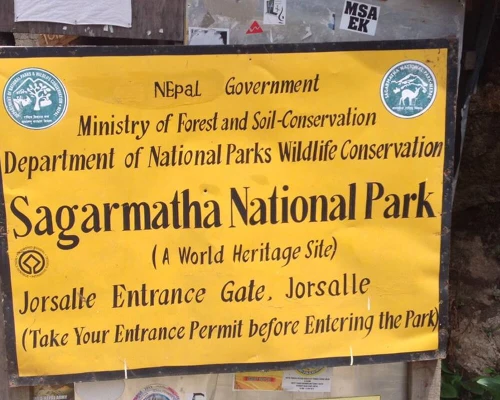
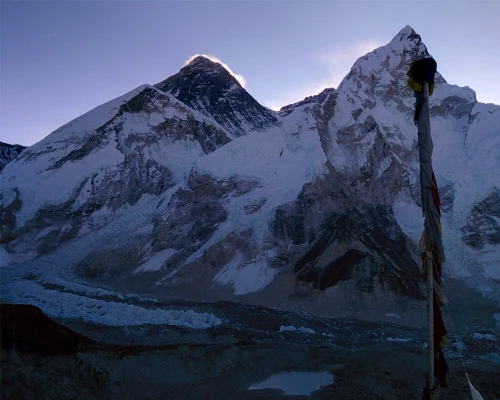
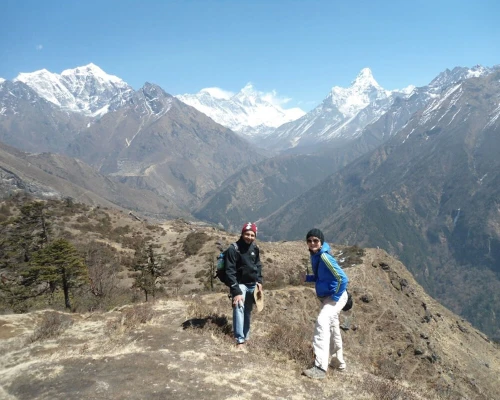
.webp)

 based on 5 reviews
based on 5 reviews




